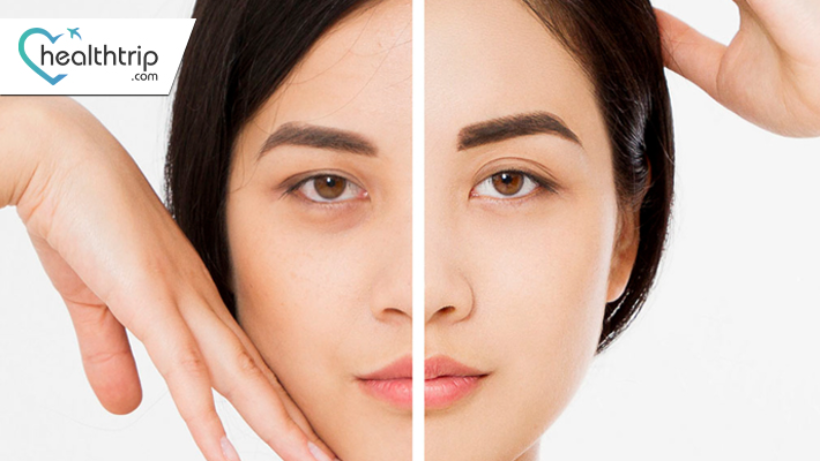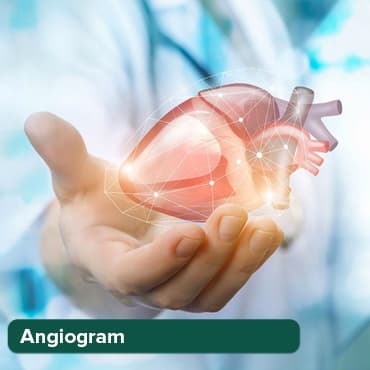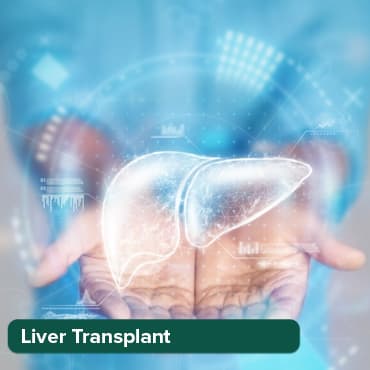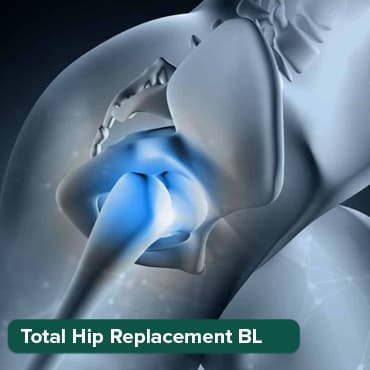
Microdermabrasion vs. Chemical Peels: Choosing the Right Package Treatment
12 Oct, 2023
 Healthtrip
Healthtrip1. Understanding the Procedures
When it comes to rejuvenating your skin and achieving a more youthful and radiant complexion, microdermabrasion and chemical peels are two popular treatment options. Both procedures offer unique benefits, but they also come with their own set of considerations. In this blog, we will delve into the details of microdermabrasion and chemical peels to help you choose the right package treatment for your skin.2. Microdermabrasion: A Gentle Exfoliation Technique
Transform Your Beauty, Boost Your Confidence
Find the right cosmetic procedure for your needs.

We specialize in a wide range of cosmetic procedures

Microdermabrasion is a non-invasive, non-chemical exfoliation procedure that uses a machine to gently remove the top layer of dead skin cells. This treatment is often used to address minor skin imperfections, such as fine lines, mild sun damage, and uneven skin texture.
Procedure: During a microdermabrasion session, a licensed esthetician or dermatologist uses a handheld device to spray tiny crystals onto the skin's surface. These crystals, along with dead skin cells, are then vacuumed away, leaving your skin smoother and more even-toned.
2.1 Benefits:
- Improved skin texture and tone
- Reduced appearance of fine lines and wrinkles
- Minimized pore size
- Enhanced absorption of skincare products
- Little to no downtime
Risks and Complications: Microdermabrasion is generally safe, but it may cause temporary redness, sensitivity, or minor bruising. In rare cases, it can lead to infection or scarring if not performed correctly.
Inclusion: Most skin types can benefit from microdermabrasion, and it is suitable for individuals seeking a mild skin rejuvenation treatment.
Exclusion: Microdermabrasion may not be recommended for those with active acne, eczema, rosacea, or deep wrinkles.
Duration and Cost: A single session usually takes 30-60 minutes, and multiple sessions are often recommended. The cost varies depending on your location but typically ranges from $100 to $200 per session.
Most popular procedures in India
Atrial septal defect
Upto 80% off
90% Rated
Satisfactory

Coronary Angiogram a
Upto 80% off
90% Rated
Satisfactory

Coronary Angiogram C
Upto 80% off
90% Rated
Satisfactory

Liver Transplant
Upto 80% off
90% Rated
Satisfactory

Total Hip Replacemen
Upto 80% off
90% Rated
Satisfactory

Post-Care Treatment: After microdermabrasion, it's essential to protect your skin from the sun and follow a gentle skincare regimen, avoiding harsh products and excessive exfoliation.
3. Chemical Peels: A Deeper Skin Resurfacing
Chemical peels involve the application of a chemical solution to the skin to remove the outer layer, stimulating collagen production and revealing fresh, smoother skin beneath. There are different types of chemical peels, ranging from superficial to deep, depending on your skin concerns.
Procedure: During a chemical peel, a dermatologist or licensed practitioner applies the chosen chemical solution to your skin. This solution exfoliates the outer layer and may cause controlled peeling.
3.1. Benefits:
- Improved skin texture and tone
- Reduced pigmentation issues (such as sunspots or melasma)
- Smoother, more youthful-looking skin
- Potential reduction in acne scars
- Variable downtime based on peel depth
Risks and Complications: Chemical peels can cause side effects such as redness, peeling, and temporary sensitivity. Deeper peels may require more extended recovery time and carry a higher risk of complications, including scarring and pigmentation changes.
Inclusion: Chemical peels can be tailored to your specific skin concerns, making them suitable for a wide range of skin types and issues.
Exclusion: Individuals with a history of keloid scarring or certain skin conditions should consult with a dermatologist before considering chemical peels.
Duration and Cost: The duration of a chemical peel procedure varies based on the depth of the peel, with light peels taking about 15-30 minutes and deep peels lasting up to an hour. Costs range from $100 to $800 or more, depending on the type and depth of the peel.
Post-Care Treatment:
Following a chemical peel, it's crucial to avoid sun exposure, use gentle skincare products, and adhere to a customized post-treatment plan provided by your practitioner.
Microdermabrasion Aftercare
After a microdermabrasion session, it's crucial to take diligent care of your skin to maximize the benefits and ensure a smooth recovery. Here are some post-treatment care recommendations:
1. Sun Protection:
- Apply a broad-spectrum sunscreen with SPF 30 or higher to shield your skin from harmful UV rays. Sun exposure can exacerbate sensitivity and pigmentation issues.
2. Hydration:
- Keep your skin well-hydrated by using a gentle, moisturizing skincare product suitable for your skin type. Hydration aids in the healing process and maintains a healthy skin barrier.
3. Avoid Harsh Products:
- Steer clear of harsh exfoliants, retinoids, and abrasive skincare products for at least a week post-treatment. Your skin is more sensitive and needs time to recover.
4. Gentle Cleansing:
- Use a mild, hydrating cleanser to cleanse your face. Avoid hot water and vigorous scrubbing, as these can irritate your skin.
5. Follow Professional Recommendations:
- Adhere to any specific post-care guidelines provided by your practitioner, including the use of specialized products or serums.
Chemical Peel Aftercare
After a chemical peel, the recovery process can vary depending on the depth of the peel. Deeper peels may require more intensive care. Here are some general post-treatment care tips:
1. Sun Avoidance:
- Stay out of the sun as much as possible, especially during the initial days after a chemical peel. Sun exposure can lead to pigmentation issues and hinder the healing process.
2. Hydration and Moisturization:
- Keep your skin moisturized with a gentle, non-irritating product recommended by your practitioner. This aids in the healing process and minimizes discomfort.
3. Avoid Picking or Peeling:
- Do not pick at any peeling or flaking skin. Let it shed naturally to avoid scarring or pigmentation changes.
4. Avoid Makeup:
- Refrain from using makeup for the first few days, as it can irritate your skin. Your practitioner will advise you on when it's safe to resume makeup application.
5. Follow Professional Guidance:
- Follow your practitioner's specific post-care instructions, which may include the use of prescribed creams or ointments.
Long-Term Skincare
Regardless of which treatment you choose, long-term skincare is essential for maintaining the results and keeping your skin in optimal condition. Here are some tips for long-term skincare:
1. Sunscreen:
- Incorporate a broad-spectrum sunscreen into your daily routine, even on cloudy days. Sun protection is the key to preventing premature aging and maintaining healthy skin.
2. Healthy Lifestyle:
- A balanced diet, regular exercise, and adequate hydration contribute to overall skin health.
3. Professional Check-Ins:
- Regularly consult with your skincare professional to evaluate your skin's needs and make adjustments to your skincare regimen as necessary.
4. Consistent Skincare:
- Establish a consistent skincare routine tailored to your skin type and concerns. This should include cleansing, moisturizing, and using appropriate skincare products.
Selecting the Right Treatment for You
Factors to Consider
Before you embark on your journey to skin rejuvenation, it's important to reiterate the significance of professional guidance. Seeking the advice of a qualified dermatologist or licensed skincare practitioner is crucial in ensuring the safety and effectiveness of your chosen treatment. They will assess your skin type, specific concerns, and medical history, tailoring the treatment to your unique needs. Additionally, their expertise will help you navigate potential risks and complications, ensuring a positive experience.
When making a decision between microdermabrasion and chemical peels, consider the following factors to ensure you choose the treatment that aligns with your skin goals and lifestyle:
1. Skin Concerns:
- Microdermabrasion is effective for addressing minor issues like mild sun damage and superficial imperfections.
- Chemical peels can target a broader range of concerns, including pigmentation, acne scars, and fine lines. Deeper peels are more aggressive and provide more dramatic results.
2. Downtime:
- Microdermabrasion typically has little to no downtime, making it a convenient choice for those with busy schedules.
- Chemical peels may involve several days of redness, peeling, and sensitivity, especially with deeper peels. Plan accordingly if you choose this option.
3. Skin Sensitivity:
- If you have sensitive skin or are prone to skin reactions, microdermabrasion may be the gentler choice.
- Chemical peels require careful consideration of your skin type and tolerance, as they can be customized to suit your needs.
4. Budget:
- Microdermabrasion sessions are generally more affordable than chemical peels, although multiple sessions may be needed for optimal results.
- The cost of chemical peels can vary widely depending on the type and depth of the peel you select.
5. Consultation:
- Prior to any treatment, it is essential to consult with a qualified skincare professional or dermatologist. They can evaluate your skin and discuss your concerns and goals, recommending the most appropriate treatment for your unique needs.
6. Follow-up Treatments:
- Both microdermabrasion and chemical peels may require a series of treatments for optimal results. Discuss your expected treatment plan with your practitioner to ensure you're prepared for the commitment.
7. Post-Care and Sun Protection:
- Regardless of the treatment you choose, post-treatment care is crucial. Sunscreen, gentle skincare products, and hydration are essential for maintaining your skin's health and appearance.
Moreover, these professionals can offer post-care guidance, recommending appropriate skincare products and practices to maintain your skin's newfound radiance. Regular check-ins with your skincare provider will help track your progress and make any necessary adjustments to your treatment plan.
The Ultimate Goal: Healthy, Glowing Skin
Ultimately, the goal of both microdermabrasion and chemical peels is to help you achieve healthy, glowing skin. Each treatment method has its place in skincare, and the choice between them should be based on your specific objectives. Whether you opt for the gentle exfoliation of microdermabrasion or the deeper resurfacing of chemical peels, rest assured that these procedures can revitalize your complexion and boost your confidence.
To make the best decision, consider your skin's unique needs, your budget, and your commitment to downtime and post-care. A professional consultation will provide you with the information and guidance needed to embark on your journey toward a more radiant and youthful appearance.
In closing, remember that the path to beautiful skin is not just about the treatment you choose, but also about the care and attention you give to your skin daily. A well-structured skincare routine, a healthy lifestyle, and adequate sun protection are all essential components in achieving and maintaining your desired results. Your skin is a reflection of your overall health, and with the right package treatment and ongoing care, you can attain the vibrant, beautiful skin you've always wanted.
Wellness Treatment
Give yourself the time to relax
Lowest Prices Guaranteed!

Lowest Prices Guaranteed!




